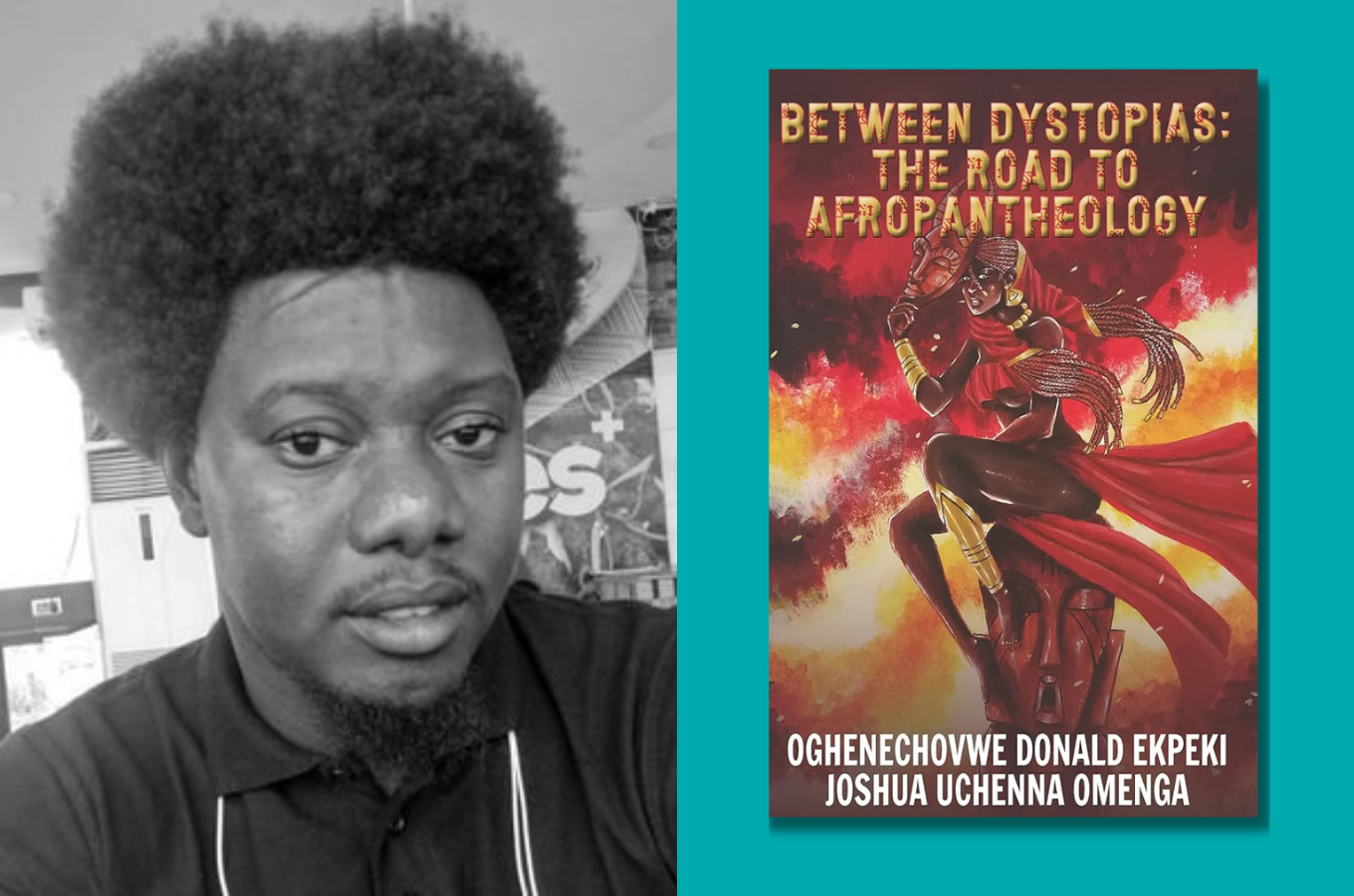
Nigerian author Oghenechovwe Donald Ekpeki just released a stunning collection of essays and stories with co-author Joshua Uchenna Omenga titled Between Dystopias: The Road to Afropantheology. As the title suggests, this book aims to coin the term “Afropantheology” drawing on aspects of African mysticism.
The book was published by Caezik SF & Fantasy on October 24. According to the synopsis, African literary scholars often struggle to reconcile African mysticism with literary labels. This collection celebrates the richness and complexity of African mysticism and dystopia through original stories.
Stories like “Mother’s Love, Father’s Place” and “02 Arena” acknowledge Africa’s journey from its origins to the future. Meanwhile, “The Deification of Igodo” and “A Dance with the Ancestors” are stories that showcase the complexity of African mysticism. “Land of the Awaiting Birth” explores the link between the born and the unborn. .
Through Between Dystopias, Ekpeki and Omenga try to define African works of literary fiction that discuss both fantasy as well as spirituality. In the introduction to the book, they explain, “African cosmologies recognize two spheres of existence—the physical and the spiritual—between which there is an inseparable link, as well as constant interactions.” Each sphere is connected to the other such as the living and dead and humans and deities.
Today, many works of African fiction that draw on African cosmologies are mislabeled as fantasy, yet they are “fictional reflections of these African realities of life”, according to Ekpeki and Omenga. They add that the genre of fantasy is very different from what they term as Afropantheology.
The genre of fantasy (part of the broader category of speculative fiction) can simply mean imaginative fictions involving outlandish characters, magical elements, and often set in created worlds. It is often a genre of escapist literature, in which readers must suspend their belief to enjoy. As such, “fantasy” can be an ill-fitting term, when describing many literary works of similar rendering from the African continent. In response, a new term was conceived to capture this gamut of African literary works, which, though having fantasy elements, are additionally imbued with the African spiritual realities: Afropantheology.
The stories envisaged under the label Afropantheology are primordial African stories inherited from priests and lorekeepers, who were in communication with the deities and the spirit world. Thus, the stories were viewed by their purveyors mostly as histories, rather than as fiction.2 (What may more correctly pass for the African literary equivalent to fantasy are the folklores, which are imaginative and didactic stories usually involving outlandish creatures and heroes, meant to entertain and sometimes instruct.) The stories of Afropantheology are not folklores, but (fictional) renderings of the histories passed down from keepers of African culture and lores. It is necessary that the stories be recognized for what they represent.
Read the full introduction here to get a glimpse of Ekpeki’s and Omenga’s ideals of Afropantheology.
Oghenechovwe Donald Ekpeki is an award-winning Nigerian speculative fiction writer and editor. He has won the Nommo award twice, and an Otherwise and British Fantasy award. His novelette “02 Arena” won the Nebula award, and made it to the finals of the Hugo Award, British Science Fiction, British Fantasy, and Nommo awards. He edits The Year’s Best African Speculative Fiction anthology series.
Joshua Uchenna Omenga is a Nigerian writer and editor of speculative fiction. His story, ‘The Deification of Igodo’ appeared in Tor.com (Africa Risen anthology) and in The Year’s Best Fantasy, Vol. 2. His ‘Pet of Olodumare’ (co-written with Oghenechovwe Ekpeki) appeared in F & SF magazine.
Buy Between Dystopias: The Road to Afropantheology here.









COMMENTS -
Reader Interactions